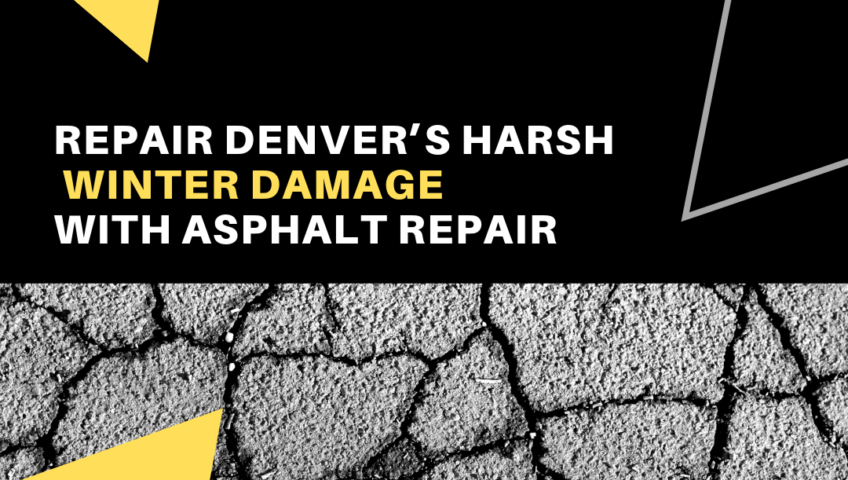
Repair Denver’s Harsh Winter Damage with Asphalt Repair
People from Colorado will undoubtedly tell you that while winters in the Rocky Mountains are no-nonsense, winter in Denver gets terrible. Even though the snow is considerable, the comparatively moderate winter is excellent for outdoor activities such as snowshoeing, snowboarding, skiing, and other outdoor recreation. Spring skiing and fuzzy snow aside, winter weather does not have to be much harsh to cause asphalt damage.
Moisture and cold can cause damage to concrete and asphalt structures – if you take long to safeguard your asphalt, it will get harder to repair it. Thankfully, several Colorado asphalt repair professionals can help you in protecting your asphalt from the harsh winter damage.
How Does Extreme Weather Affect Asphalt?
Asphalt is prone to the impacts of water damage resulting from extreme weather conditions, which means tons of snow and freezing temperatures in Denver. Luckily, with preventive measures and routine maintenance from Denver asphalt repair professionals, you can make sure that your asphalt remains strong as the mountain rocks.
Effects of Cold & Moisture on Asphalt
When water from ice and snow filter through the porous surface of your asphalt, it gradually erodes the structural purity of the asphalt. However, the actual damage happens when the outside temperatures go below the freezing point. When water freezes, it expands. The moisture contained in asphalt only requires a single freezing day to crack due to the strain of the expanding ice and water.
Effects of UV Rays on Asphalt
Denver city is one mile high, and that means that asphalt in Denver is nearer to the sun and the destructive effects associated with it. UV rays accelerate the rate of surface degradation, which forms small waves and soft spots across the surface of your asphalt.
Daily use and UV rays make the components that join asphalt together weak, which might lead to the fading of the black color of asphalt into a dull gray. Sealcoating cracks are the best method of protecting your asphalt from UV rays and heat whenever damage occurs and routine preventive maintenance.
How to Prevent and Repair Erosion & Damage
With some advice about paving and preventive maintenance from professionals, you can protect your asphalt from the harsh winter weather damage effects.
Repairing Storm Basins
Storm basins are constructed to hold and restrain water from the surface of your asphalt before accumulating to cause damage. But, it is not unusual for runoff from snow and a torrential downpour to move the storm basin from its designated position.
If you see water accumulating in places, it shouldn’t be or cracks in your storm basin, contact a Denver Asphalt repair professional right away. Remember that an inch of water can cause damage to thousands of dollars.
Sealcoating
It is a method used to protect asphalt from gas and oil spills. Sealcoating also prevents the spread of cracks, thus enhancing the artistic taste of the asphalt surface and increasing the durability of the asphalt construction.
Crack Sealing
Crack sealing your asphalt increases the durability of your structure by preventing debris and water from accumulating in the cracks on the surface of your asphalt.
Protect Your Asphalt from Harsh Winter Damage
Hiring professional paving contractors in Denver is the best way to protect your asphalt from the damaging effects of the harsh winter weather. From big business projects to basic repair and maintenance, they provide the best paving solutions in Denver. So, don’t hesitate to seek assistance from an expert if you notice any asphalt damage to your structure.
